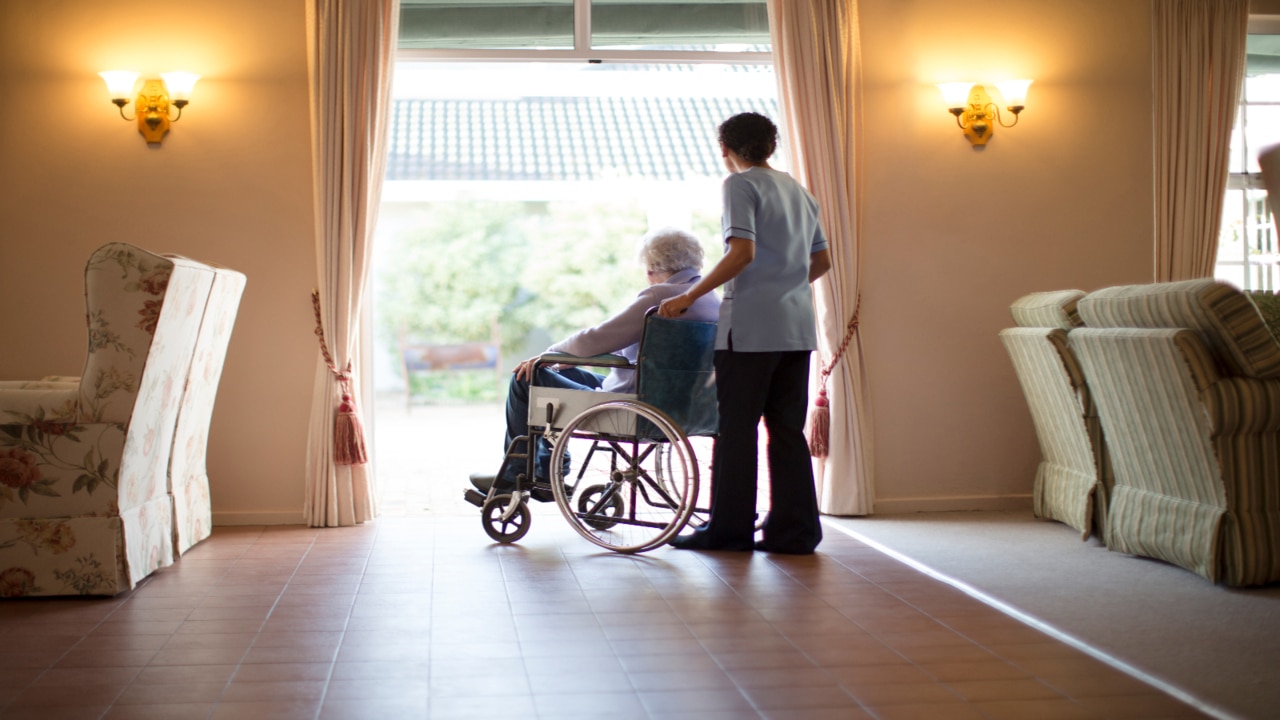Migrants to fill aged-care jobs via New Aged Care Industry Labour Agreements launched by Immigration Minister Andrew Giles
Aged-care providers will need to strike unions deals to make it easier to sponsor direct care staff on skilled visas and fast-track permanent residency under a government plan.

Aged-care providers will need to strike agreements with unions to make it easier for employers to sponsor direct care staff on skilled visas and fast-track permanent residency for foreign workers under a government plan tackling chronic workforce shortages.
New Aged Care Industry Labour Agreements launched by Immigration Minister Andrew Giles on Friday will allow sponsored workers to speak to their respective union shortly after commencing employment “should they wish to do so”.
Access to the agreements will be provided to employers who “have entered into a memorandum of understanding with the relevant industry union”.
Amid concerns about increased vulnerability of temporary migrants, sponsored workers will have access to support from unions, which the government says is optional and not linked to union membership.
The agreements, providing additional incentives for employers to attract workers including an expedited two-year pathway to permanent residency, follow the government’s $11.3bn spend over four years to deliver 15 per cent pay hikes for around 250,000 frontline aged-care workers.
After seven months of consultation with industry and unions, the government is encouraging employers to negotiate agreements with unions immediately and will prioritise processing of associated visa applications through the Department of Home Affairs.
The aged-care labour agreements, which will work alongside higher investment in skills and training to grow the domestic workforce, are aimed at stemming direct care worker shortages estimated at as high as 35,000 each year across the sector.

The government plan is designed to increase recruitment and retention in the aged-care workforce and help the Albanese government deliver on its election commitment of 24/7 nurses and mandated increased average care minutes in nursing homes.
With the skills priority list defining direct aged-care occupations as being in national shortage, Mr Giles said Australia can “both address workforce shortages for crucial jobs in our society while also protecting workers and promoting good jobs”.
“This process speaks to the broader goals of the Albanese government’s approach to migration and visas, facilitating important social and economic outcomes for all Australians. This labour agreement is only possible due to the work undertaken over the past 10 months to clear the visa backlogs and reset Australia’s approach to visa policy,” Mr Giles told The Australian.
“The Aged Care Labour Agreement settings have been designed to strike a balance between the opportunities migration can facilitate to build a workforce while recognising the vulnerabilities faced by workers on temporary sponsored visas.”
Aged Care Minister Anika Wells said the agreements would help aged care providers and workers by “streamlining the employment and visa process for overseas workers”.
“Older people in Australia need a skilled, diverse and valued workforce so they can receive safe, high-quality, care,” Ms Wells said.
A report released by the Committee for Economic Development Australia last year warned that the required staffing levels for the ageing population were projected to fall short by up to 35,000 each year.

The report said the shortfall was exacerbated by around 65,000 workers out of a total 360,000 workforce leaving the sector each year because of burnout during the pandemic, access to better-paid jobs in the care economy, the low numbers of migrants returning to Australia to work in aged care and poor conditions.
Aged care provider advocacy group, Aged & Community Care Providers Association, has called on the government to continue the relaxation of working hour restrictions on student visas beyond the current cessation date of June 30.
Many overseas students are employed in caring roles both in residential facilities and in-home care, and providers are looking to find ways to meet the government’s new requirements for greater minutes of care per resident in aged care homes, beginning in October.
National Seniors, the leading advocacy group for senior Australians, is proposing a new “mature age traineeship” program to attract older workers into the aged care sector. It is calling for workers to be given a traineeship wage during the training, and then be guaranteed a job at the end of the program.
National Seniors says many older Australians are not ready to give up work, and make for empathetic and patient carers.
With about two-thirds of aged care homes operating at a loss, unions on Thursday remained concerned that some aged care providers wouldn’t pass the full pay rise on to staff.







To join the conversation, please log in. Don't have an account? Register
Join the conversation, you are commenting as Logout